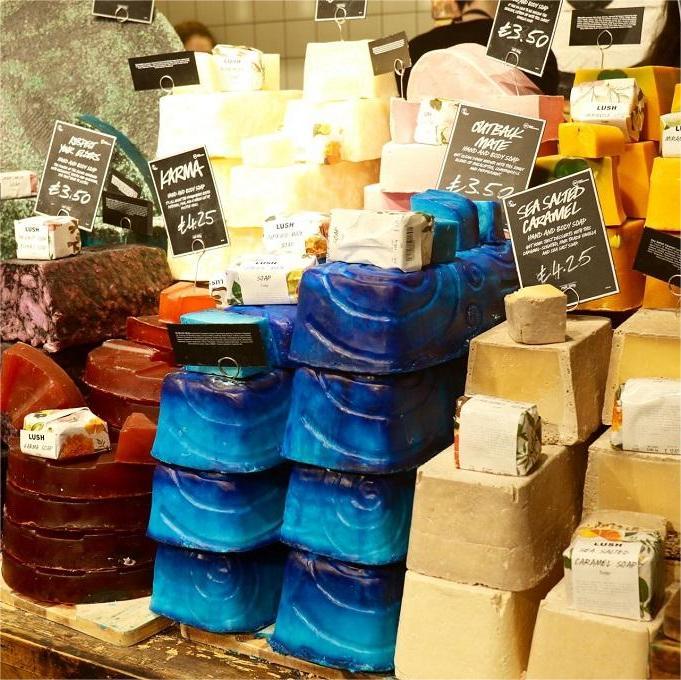Soap Making Tips & Techniques.
soap making techniques involve the use of a variety of ingredients and methods to produce a soap. Soapmaking techniques can be classified into three main categories: basic, enriched, and luxury.
Basic soaps are those that use only natural ingredients or those that are made with a limited number of ingredients. Enriched soaps contain additives such as fragrances, colors, vitamins, and minerals. Luxury soaps are made with more than one type of ingredient and usually require more work to produce a good result. Some common luxury soapmaking techniques include using Shea butter or beeswax for body wash, using essential oils for fragrance, or incorporating animal products into the recipe.
What are the Different Types of Soap Making Techniques.
There are several different types of soapmaking techniques that you can use to create different types of soaps: Melt & Pour (M&P), Cold Process (CP), Hot Process (HP), and Starch-Based Soapmaking (SB). The most common M&P technique is Melt & Pour, which involves melting down an appropriate amount of soap base material and casting it in a mold. CP is used to make soaps with added fats or waxes; HP is used for high-fatsoap applications; and SB is used for low-fatsoap applications.
There are also several different ways toCold Process your soaps:Shampoo Bar-by-Bar: This technique uses large batches of small Detergent Shampoo bars that you add directly to your hot water during cold process production
Wet Castor Oily Castor Oil Soap: This recipe uses an oily castor oil instead of any other oil to create an ointment-like soap
Lemon Balm Soap Recipe with Citrus Zest: This recipe includes adding lemon juice to the soap mix before hand to provide flavor
Green Tea Latte Soap Recipe with Lemon Peel: This recipe uses green tea extract as its primary flavorant
Extra Virgin Olive Oil Cold Process Soap: This recipe uses extra virgin olive oil instead of any other vegetable oil to create a cold process soap
What are the Benefits of Soap Making Techniques.
Some of the benefits of soapmaking techniques include:
-lowering cost
-producing a high quality product
-saving time and effort
-producing a more even body composition
Soap Making Tips & Techniques.
The soap making process starts with understanding the chemistry of soap. In order to make soap, you need a number of ingredients that interact together to create a soap product. The most common ingredients in soap are oils, water, and salts.
When it comes to soapmaking, it’s important to understand the different stages of the process. Soapmaking usually starts with the preliminary phases which involve mixing all of the ingredients together. These include heat-up time, saponification, and chemical analysis. After this, you will move on to the more detailed phases which involve adding fats or Non-GMO essential oils and working with alkalis (or bases) to form a mud or solution.
After completing these steps, you can then start producing finished products like soaps or shampoos. And finally, there is the post-processing phase which includes conditioning and lathering.
Tips for Soap Making.
Be safe in soap making by using the right tools and techniques. Use a non-toxic soapmaking recipe, make sure your hands are clean, and avoid skin irritations.
Use the Right Soap Making Tools.
Use the correct tools to make soap. Look for a soapy scouring brush, liquid soap40 ounces (1 quart), measuring cups and spoons, and a pot with a tight-fitting lid to create the desired lather.
Use the right amounts of soap.
Make sure to use the proper amount of soap when making soaps – too much or too little can cause irritation or other problems. Soap should be mixed evenly with water before adding fragrance or essential oils, and it should never be left aside to dry out – this can lead to fungal overgrowth or worse!
Soap Making Tips & Techniques for All Occasions.
When it comes time to make soap, there are many different ways to do it! Here are some tips for all sorts of applications:
Soapmaking tips for everyday use include using just enough water and detergent to cover ingredients but not too much that it becomes thick; using gentle hands; using low heat; kneading dough until smooth; and forming molds from start to finish without stopping…










